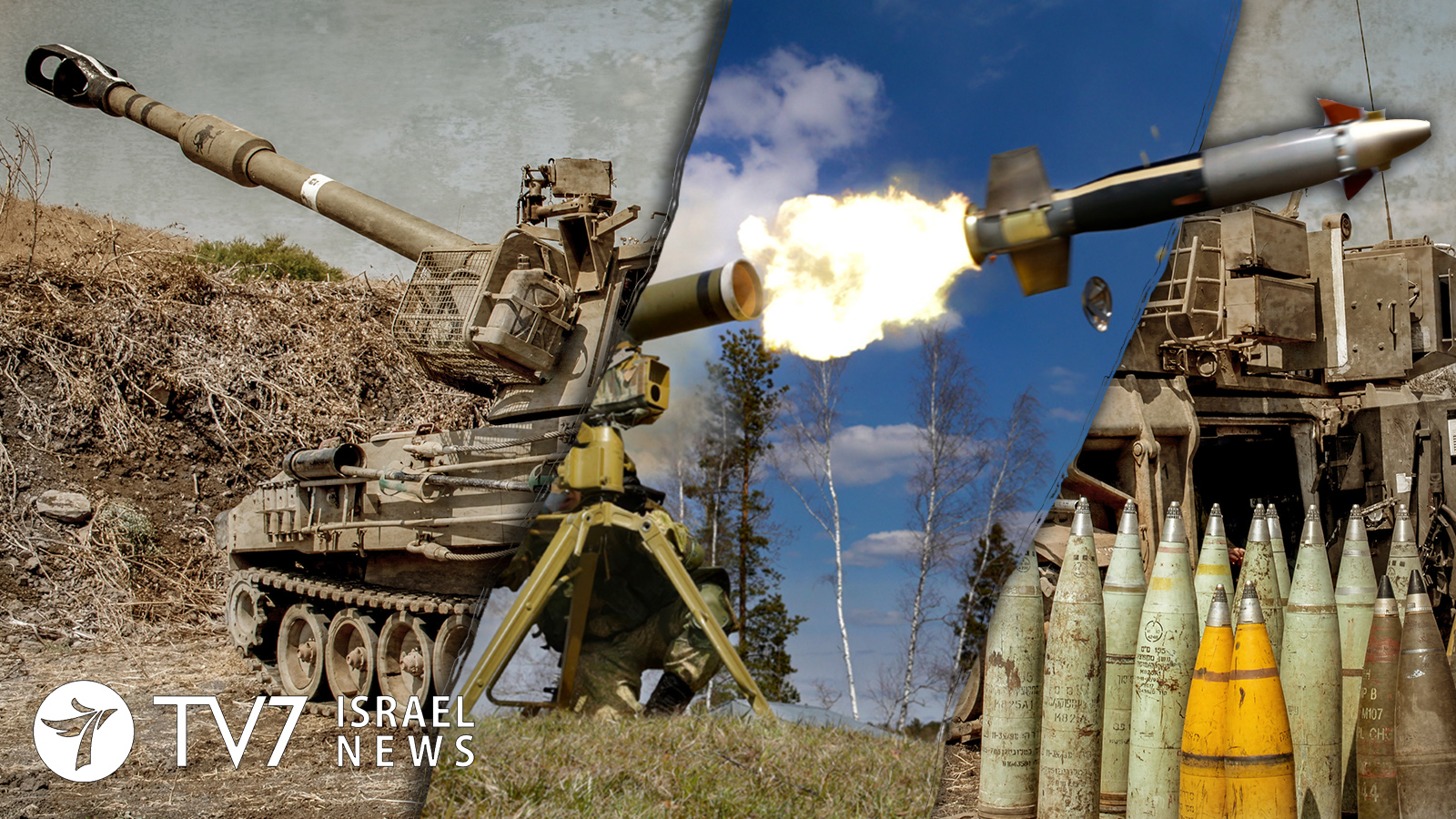Following the cross-border exchange of fire between Israel and Iran’s Lebanese-proxy Hezbollah, the IDF continues to maintain a high level of alert which one military official said “is expected to last for several more days, unless Hezbollah miscalculates Jerusalem’s resolve to defend itself.”
A video that was published by the Hezbollah-linked Al-Manar Network purports to show two anti-tank Kornet missiles being fired in the direction of a moving IDF armored vehicle.
TV7’s military experts confirmed, based on the footage and separate discussions with Israeli security sources, that “neither of the rockets managed to hit the vehicle.” They explained that ‘unless a direct hit is sustained, the ‘Wolf Armored Vehicle’ (commonly known by its Hebrew name “Ze’ev”) is built – along with other special features – to withstand a Kornet’s recoil.’ One of our military experts underscored that while it is extremely hard for a Kornet missile to hit a moving target from a distance, he insisted that “divine intervention” prevented any Israeli casualties. Furthermore, Israeli defense officials clarified to TV7 that “If there were soldiers wounded, or – God forbid – killed by the anti-tank missiles, the situation would have deteriorated into an all-out war. The officials revealed that Israeli Air Force fighter jets were in position to devastate Hezbollah, and to have ensured, if mandated, that its entire missile project would have been wiped out.
Speaking from a bunker in an undisclosed location in Beirut, Hezbollah Secretary General Hassan Nasrallah declared in a televised address to his followers yesterday that Sunday’s attack constituted a major breach of “the biggest Israeli red line since tens of years was broken by the Islamic resistance.” The Hezbollah leader insisted that the attack altered the rules of engagement vis-à-vis the Israeli theater, and vowed to inflict havoc the likes of which the Jewish State has never experienced before. Nasrallah threatened, “The message is clear, if you attack, then all your border and soldiers and settlements on the border and deep inside will be at risk of attack and response,” stressing “We told them (referring to Israel) that we don’t have any red lines anymore, because you tried to change the rules of engagement, we do not have any red lines anymore.” The Hezbollah chief went on to say, “So we can say today that we are now facing a round that we can say has ended, in its foundational sense, going forward, the drones will continue (entering Lebanon), if there is any attack on Lebanon in the future, there’s nothing called international borders, borders of 1948, or Shebaa Farms, this all has ended, the ceilings are all clear now.”
In response to Nasrallah’s threats, Prime Minister Benjamin Netanyahu released a video statement. The Premier insisted Israeli forces “acted yesterday with determination and responsibility” to “maintained the security of our citizens and the peace of our soldiers.” He then ridiculed the Hezbollah leader, saying “The man in the bunker in Beirut knows exactly why he is in a bunker,” adding “We will continue to do everything necessary in order to maintain the security of Israel – on land and sea, and in the air, and we will continue to act against the threat of precision missiles.”
It is important to note that since the cross-border exchange of fire on Sunday, Israel has received offers to mediate the outbreak of violence from the United States, France, and Egypt. According to sources familiar with the developments, Lebanese Prime Minister Saad al-Hariri urged international intervention to prevent a further escalation of hostilities.
Meanwhile on Lebanon’s side of the border, civilians are continuing to visit the frontier to gain first-hand glimpses of the site of Sunday’s incident. Residents of the Bint Jbeil village told Reuters that they watched the situation unfold, with Hassab Bazzi boasting that “the Israelis are afraid” as a result of Hezbollah actions.
Despite the claims of Israeli cowardice, less than a kilometer (half mile) over the “Blue Line”demarcation between the two countries, a resident of the Avivim village adamantly demonstrated resilience in the face of Hezbollah and Iranian threats. Oren Vakil told the news agency, “We’ve seen everything. Now that we are grown-ups and we have kids, we are a little more worried for the kids – less for ourselves.” The Northern Israeli then vowed, “But still, nothing will break us, not Nasrallah and not Khameinei and no one else,” concluding, “We are strong” and “We will stay strong.”
